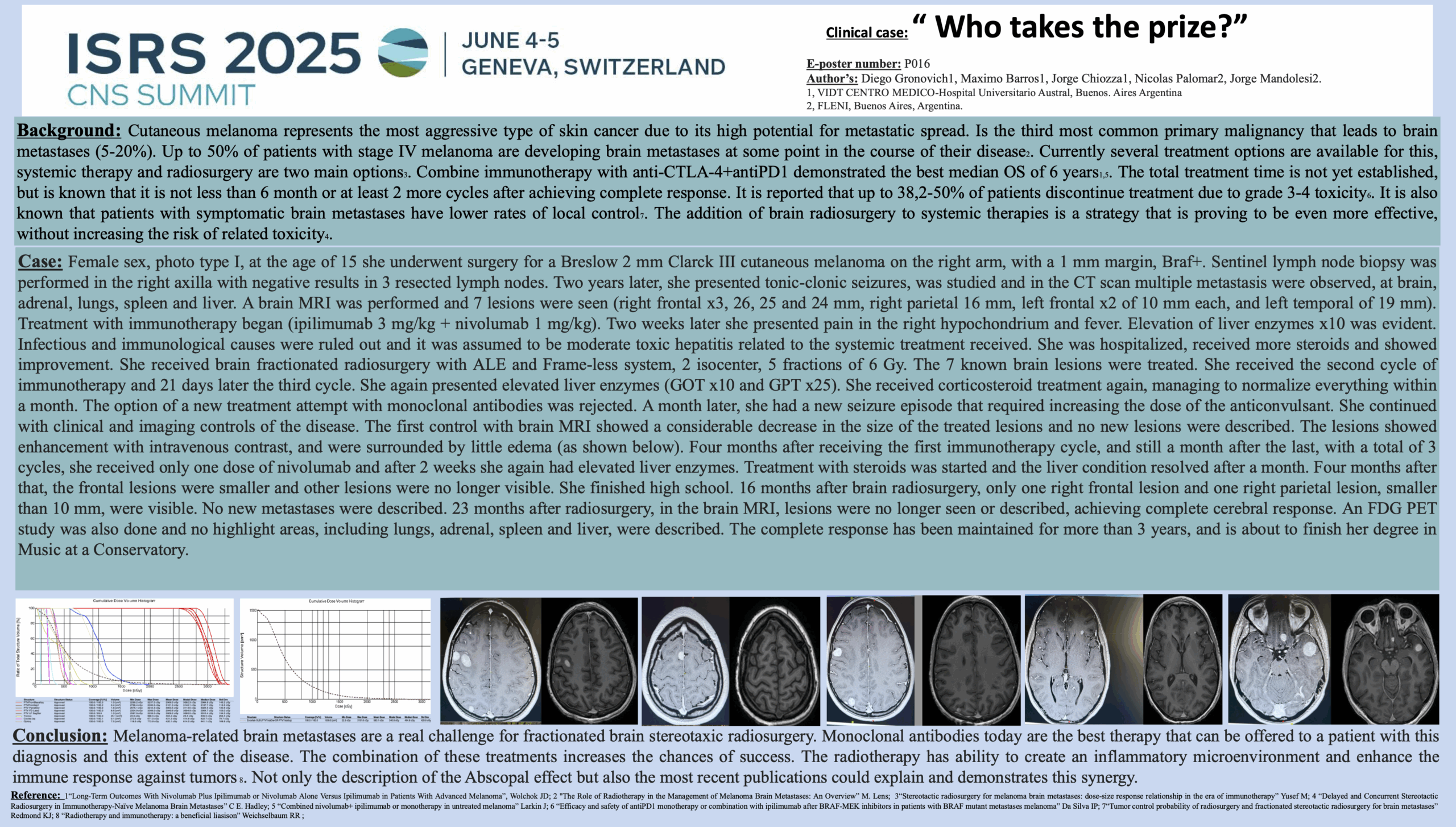Female, at the age of 15 underwent surgery for a Breslow 2 mm Clarck III cutaneous melanoma on the right arm with 1 mm margin. Sentinel lymph node biopsy was performed in the right axilla with negative results in 3 resected lymph nodes. Two years late, she had a seizure, was studied and multiples metastases were observed (lung, adrenal, liver, spleen and brain). A brain MRI was performed and 7 lesions were seen. After a few days, treatment with immunotherapy began (ipilimumab 3 mg/kg and nivolumab 1 mg/kg).
Two weeks later she presented pain in the right hypochondrium and fever. Elevation of liver enzymes x10 was evident. Infectious and immunological causes were ruled out and it was assumed to be moderate toxic hepatitis related to the systemic treatment received. She was hospitalized, received more steroids and showed improvement. Then she received brain fractionated radiosurgery with ALE and Frame-less system, 2 isocenter, 5 fractions of 6 Gy. The 7 known brain lesions were treated. After that she received the second cycle of monoclonal antibodies and 21 days later the third cycle. Liver enzymes rose again (GOT x10 and GPT x25). She received corticosteroid treatment, managing to normalize everything within a month. The option of a new treatment attempt with monoclonal antibodies was rejected. A month later, she had a new seizure episode that required increasing the dose of the anticonvulsant and steroids. The control brain MRI showed a considerable decrease in the size of the treated lesions and no new lesions were described. The lesions showed enhancement with intravenous contrast, and were surrounded by little edema. After a few days she received only one cycle of nivolumab and 2 weeks later she again had elevated liver enzymes. Treatment with steroids was started and the liver condition resolved after a month. 16-month post brain radiosurgery, in the brain MRI, lesions were no longer seen or described, achieving complete cerebral response. An FDG PET CT SCAN was also done and no highlight areas were described. She has currently been free of illness for a year.
Conclusion: Melanoma-related brain metastases are a real challenge for fractionated brain stereotaxic radiosurgery. Monoclonal antibodies today are the best therapy that can be offered to a patient with this diagnosis and this extent of the disease. Not only the description of the Abscopal effect but also the most recent publications explain and demonstrates this synergy


